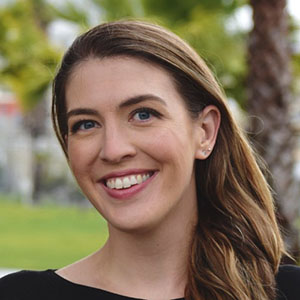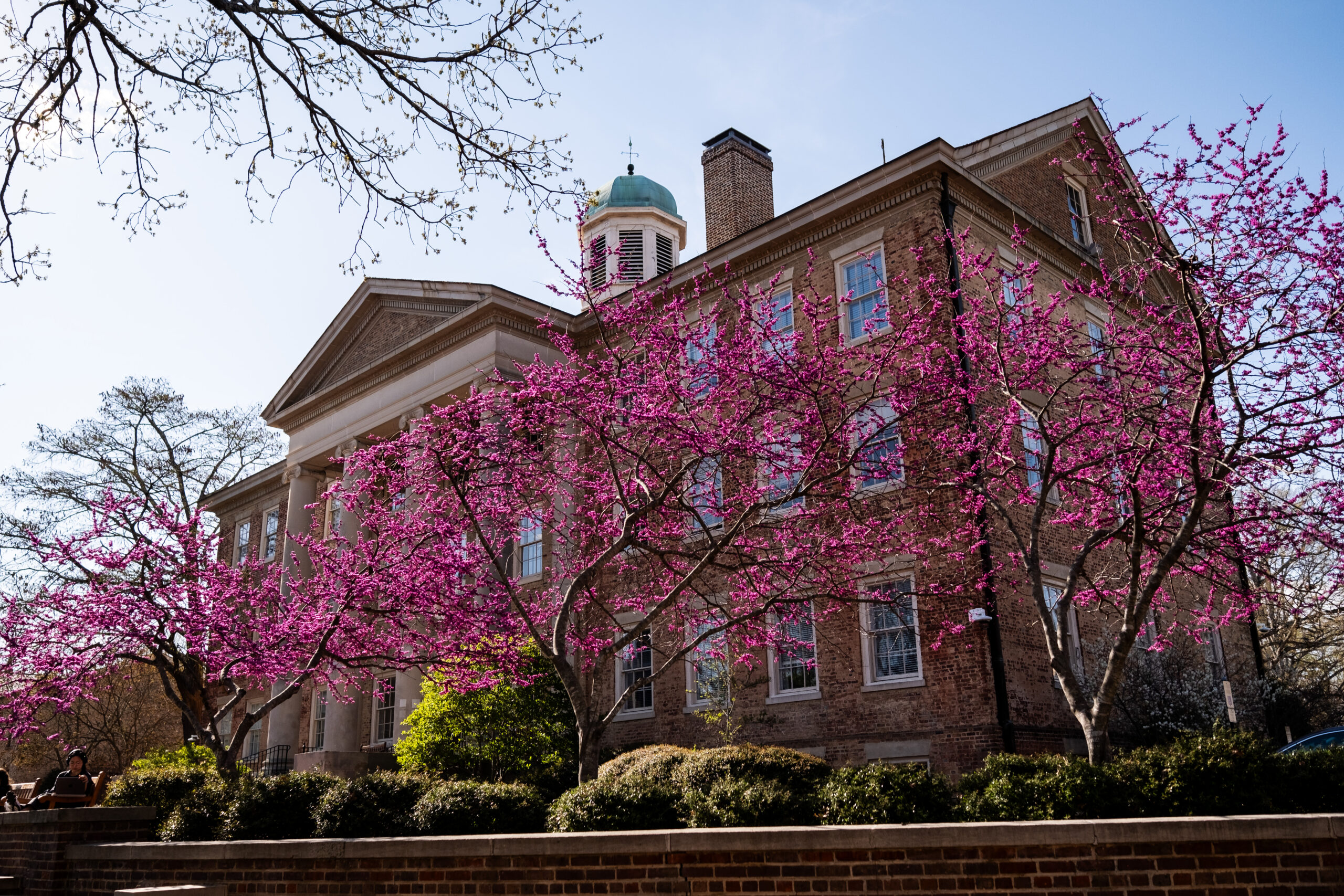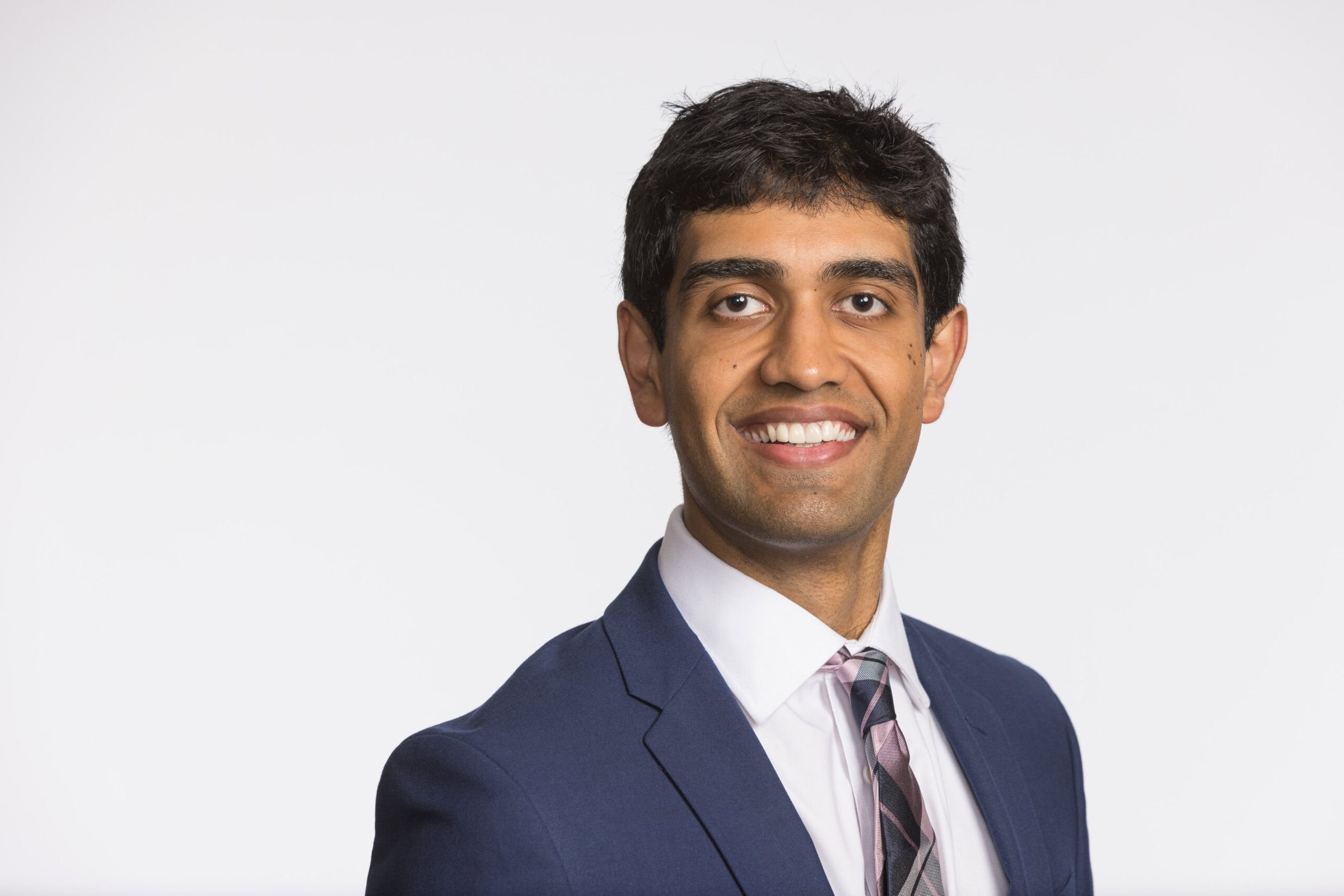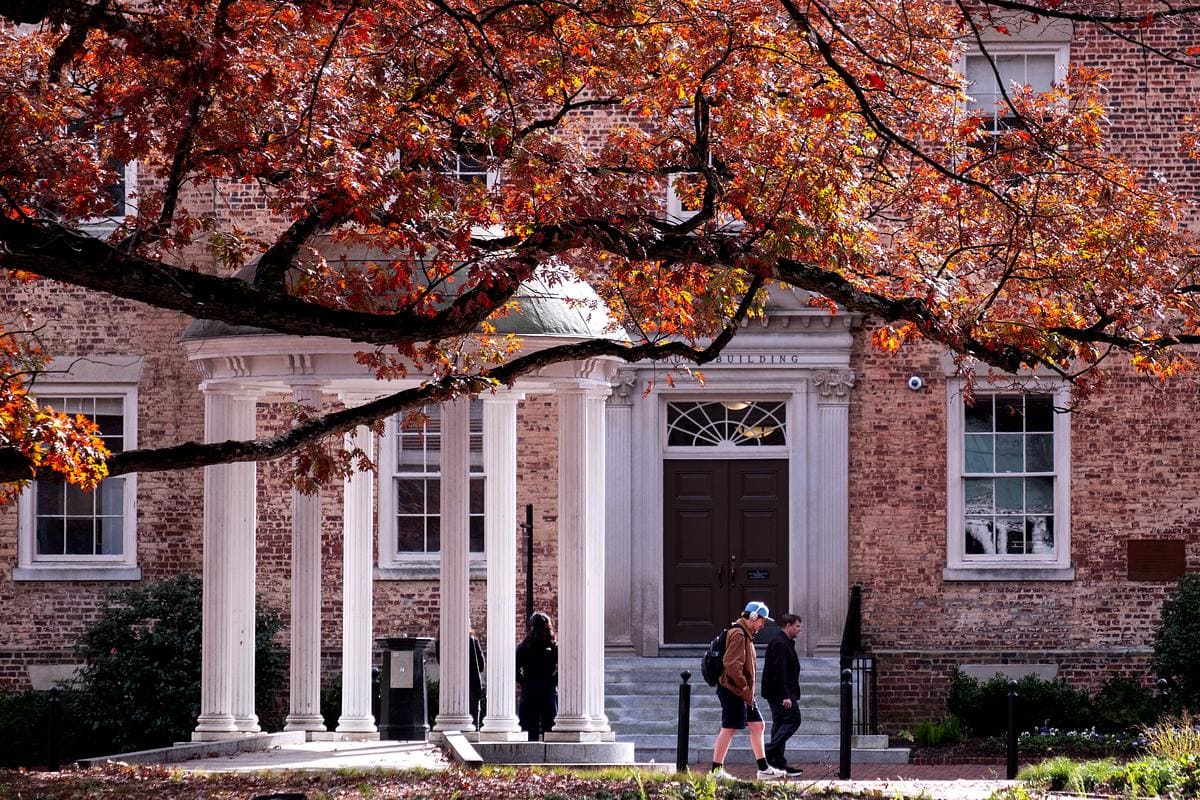
These are strange times to be living in, but it’s also a very busy time for Morehead-Cain, so we wanted to get everyone up to speed.
Welcome back to Catalyze. As we finish out an extraordinary semester at UNC, here are some things we thought you’d want to know.
Last Thursday, we announced the Morehead-Cain Class of 2024. We want to wish a warm welcome to the 70 new scholars who are joining the Carolina community.
This week, we’re launching our Virtual Morehead-Cain SEVEN Speaker Series, starting with Shilpi Somaya Gowda ’92. The bestselling author will offer advice and encouragement about getting started as a writer. Her talk begins at 7:00 p.m. EDT on Wednesday, April 29.
Next Wednesday, Tom Thriveni ’10, a staff writer for The Late Late Show with James Corden on CBS, will speak about overcoming self-doubt. You can learn more about the virtual series and upcoming speakers on the Morehead-Cain Network.
We’re also rolling out the 2020–2021 Morehead-Cain Mentoring Program. Rising juniors and seniors, if you want to be matched with an alumni mentor, fill out the scholar survey form on the MCN by June 1st.
Some shout-outs
Congratulations to seniors Daniel Malawsky for receiving the Churchill Scholarship and the Gates Cambridge Scholarship to study medical genetics in England, Wesley Price for receiving the Luce Scholarship to pursue policy research in Indonesia, and junior Mina Yakubu for receiving the Truman Scholarship to study immigration reform in law school.
We also had eight Morehead-Cains receive Chancellor’s Awards this semester. Congratulations to the following scholars for the recognition, and thank you or your positive impact at UNC.
2020 Chancellor’s Awards Recipients
- Agnes Ezekwesili ’20
- Evelyn (Evie) Morris ’20
- Megan Raisle ’20
- Ruth Tomlin ’20
- Uzorma (Ozzie) Owete ’20
- Wesley Price ’20
- Donald (Don) Fejfar ’21
- Sean Nguyen ’21
Lastly, we want to congratulate all of our scholars—but particularly our graduating seniors–for finishing a tough semester, to say the least. Wishing you all best of luck with your final exams this week. You got this.

Corrie Conrad ’02
Our featured Morehead-Cain for this episode is Corrie White Conrad ’02, the VP for social impact, sustainability, and inclusion and diversity at Sephora. We spoke in early March when Corrie flew from San Francisco to Chapel Hill for Final Selection Weekend. The music for this episode is by Scott Hallyburton ’22, guitarist of the band South of the Soul.
Music credits
The episode’s intro song is by scholar Scott Hallyburton ’22, guitarist of the band South of the Soul.
How to listen
On your mobile device, you can listen and subscribe to Catalyze on Apple Podcasts or Spotify. For any other podcast app, you can find the show using our RSS feed.
Catalyze is hosted and produced by Sarah O’Carroll for the Morehead-Cain Foundation, home of the first merit scholarship program in the United States and located at the University of North Carolina at Chapel Hill. You can let us know what you thought of the episode by finding us on social media @moreheadcain or you can email us at communications@moreheadcain.org.
Episode Transcription
(Corrie)
I think one of the things that I’m super proud of, and really excited about for this year, is some of the work that we’re doing on racial justice and racial equity. Specifically, there’s a study that we’ve commissioned on racial bias in the retail experience. And as that study takes effect this year, there’s a literature review component, there’s quantitative and qualitative research that’s a part of it, and an external team that we’ve engaged to lead it. We’ve also made commitments to action that we’ll take based on the recommendations that come from the research. And so I’m just really looking forward to the next steps there.
(Sarah)
And the study on racial bias that you mentioned, did that spawn from anything in particular? I know that this is something that you live and breathe in each day — working on diversity initiatives.
(Corrie)
Yeah, so one of the things that we know, which is unfortunately just a terrible reality of our world, is that racial bias exists. It does. And there’s all kinds of independent research out there that shows this, that reflects this reality. And so in a world where racial bias is the norm, how might we work intentionally to mitigate it to create spaces where equity and equality are the norm?
The goal here is for this not just to be a Sephora-only effort, but to really see outcomes that can be implemented or are, I guess, recommendations that can be implemented across retail as an industry. And we are committed to leading with commitment-to-action based on what we find, but we will also be holding these findings with open hands to share them with others who are seeking to create a more equitable and just world.
(Sarah)
I was just reading up on some of the very neat projects you spearheaded, including Sephora Stands Together, the social impact strategy division, Classes for Confidence for women re-entering the workforce and for those who have gone through cancer, and Sephora Accelerate, the startup incubator. Is there anything you’d want to share about the thinking behind these initiatives and how you get the vision for what you want to prioritize. What else goes in to how you decide what’s to be next and what to dedicate your energy to?
(Corrie)
Yeah, so that’s the umbrella of our work, Sephora Stands (“Sephora stands with our people, with our planet, and with our communities”). And we do that through inclusion and diversity, social impact, and sustainability programs. How we decide what to do, or what projects to start, really is, at a simple level, looking at where there are needs in our community.
And it was really with that kind of initial framework and lens that we identified the Classes for Confidence program as a strategic opportunity. Teach is a core brand behavior for Sephora so there was already an infrastructure for classes (we offer free classes in our stores). How might we use those classes for greater good? That was the question that my team asked, and what we discovered was that there were some specific opportunities where we could be uniquely Sephora for greater good.
And one of those Classes for Confidence became Bold Beauty for gender nonconforming and transgender people, where we create a safe, fun place to try and play with makeup for folks who maybe haven’t had the chance to do that before. The other Brave Beauty classes are for those on a cancer journey. Again, looking uniquely at what Sephora can offer in terms of teaching how to draw eyebrows, how to take good care of your skin while going through some of the drying treatments for cancer. And then workforce reentry has been another one, so we can teach a natural professional a makeup look that’s good for job interviews. So it’s really looking at, again, kind of where the strengths of Sephora meet needs in our communities.
The story behind Sephora Accelerate is a fun one because Sephora has this history, particularly in the United States (we’re a French-owned company; our roots are in France) of working really closely with entrepreneurs and helping brand founders to succeed. And it turns out that it worked really well.
Sephora has a history of identifying new brands that people haven’t really heard of yet, and then helping them grow and to do well. And when I started at Sephora a little over five years ago, I was curious, looking at the data of our top 100 brands, of what the gender makeup was of the leaders of those brands. And at the time, the majority were led or founded by men in our 100 list.
Since then, I’m pleased to share that our fastest growing brands are women-founded and led by women. You know, when you’re a beauty company, a pristine beauty retailer, and the majority of your clients are women, it felt like there should be a greater reflection of women in brand leadership of the brands that we sell. And so we saw the opportunity to take that strength of working with entrepreneurs in building those brands and to focus specifically on supporting female founders of early stage beauty startups.
And so that’s what the Accelerate program has done. And this year, we will surpass our goal of supporting and building an ecosystem of support for more than 50 women founders.
(Sarah)
Wow, that’s great. And you mentioned that Sephora is a French-owned company or that’s where its roots are. Do you get to use your French that you mastered at Carolina?
(Corrie)
I do, I use my French quite a lot. Our global headquarters are in Paris. And so I do make my way to Paris normally only about once or twice a year.
(Sarah)
Well, I’m very jealous, but that’s very exciting. As you look back at your Morehead-Cain experience and your time at UNC, are there any of the summer experiences or otherwise that, as you look back now on your career at Google and other nonprofits and so forth, that help you understand how you navigated those choices? I know you were in Thailand, in Zimbabwe, and working in D.C. for the Washington File. Do any of those jump out at you as especially salient and influential as you look back now?
(Corrie)
I think there’s so much from my time at Carolina that laid the foundation for where I have gone, you know, what I’ve become, across all of those various experiences that you mentioned.
One of the things that I think sticks out to me the most is just the ability to to try new things that you haven’t done before and just to go for it and kind of figure it out, and maybe just the courage to do that and know that it’ll be OK. And I think so often we think maybe, there’s the “traditional path” or the way that things are supposed to go, and my journey has definitely, I would say, not been traditional in that regard.
It’s been totally unexpected. I would have never thought that I’d go from working in health care in East Africa to Google to Sephora, right? But just like the summer experiences were so diverse and varied, I think that undergraduate experience kind of prepared me for the courage and curiosity to make some bold choices and to see what that could bring. So it’s been incredibly fulfilling and fun.
(Sarah)
And it sounds like that instinct to take a leap kicked in immediately because you were sharing that you moved to San Francisco with your husband pretty early on into marriage without, exactly, this 10 -year specific plan of what you’re going to do next.
(Corrie)
That’s true, we did. We moved to San Francisco because it’s where we wanted to be. We didn’t have jobs at the time and figured we would kind of figure it out. And we did.
And so, yeah, I think, you know, maybe sometimes we wait or we think that we’re supposed to have it all figured out before we take the next step. And I have found that often, it’s in taking the step that you figure things out. So, yeah, maybe there’s something there. Don’t have it all figured out before you take a step. Take a step, and then you’ll figure it out.
(Sarah)
It does always seem like there’s this great pressure to already know exactly what you’re going to do and the way that you’re going to get to whatever looks like success for you, and that maybe it’s not really about that end point at all.
(Corrie)
Yeah, I think that’s an insightful takeaway.
(Sarah)
Well, is there anything else you’d like to add? We’re recording here on the cusp of Final Selection Weekend, so I know you’ve got a big weekend ahead of you, but anything else you’d want to share to scholars, alumni, and the friends of the Foundation?
(Corrie)
Oh, wow, I would just say thanks for listening. And I mean, I am so grateful that I was in the Morehead-Cain program here at Carolina. It has had such a profound impact on my life, and it feels really good to be back. There’s this sense of homecoming I feel from just being on the campus and, you know, walking by the Old Well, and it’s just, yeah, all the warm fuzzies. So thanks for having me, Sarah.
(Sarah)
Well, thank you so much for being here.
Note: This episode has been edited slightly for clarity.


